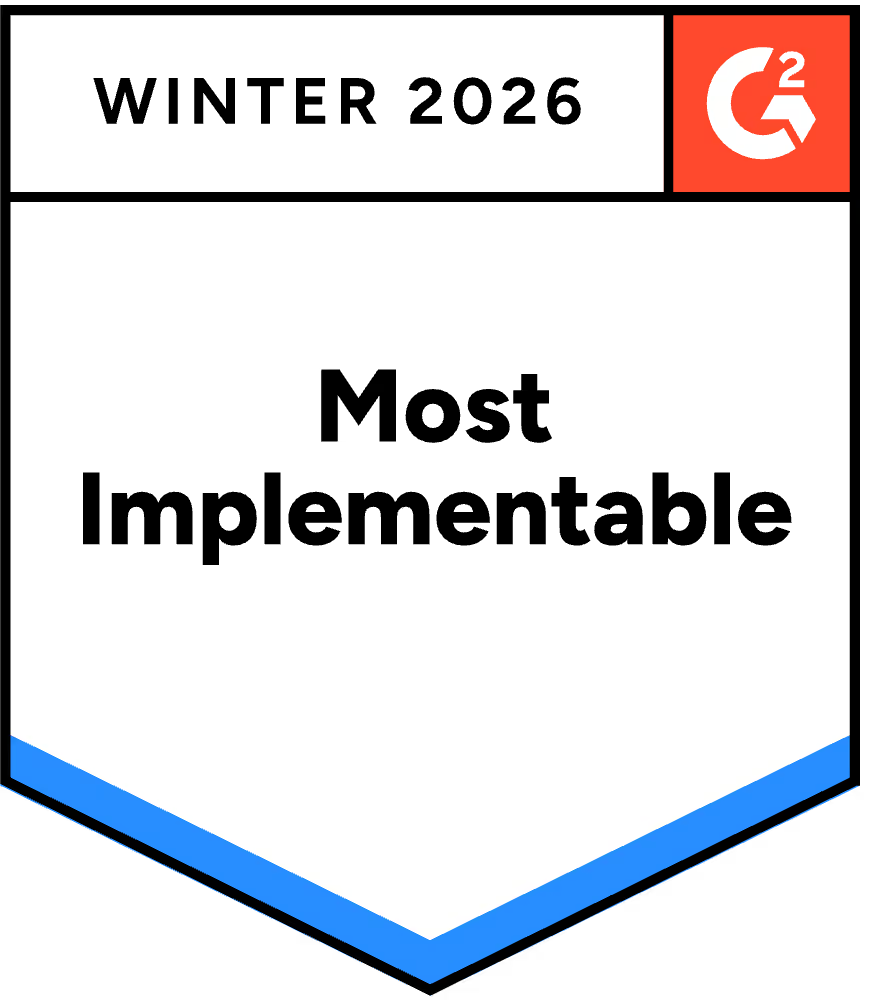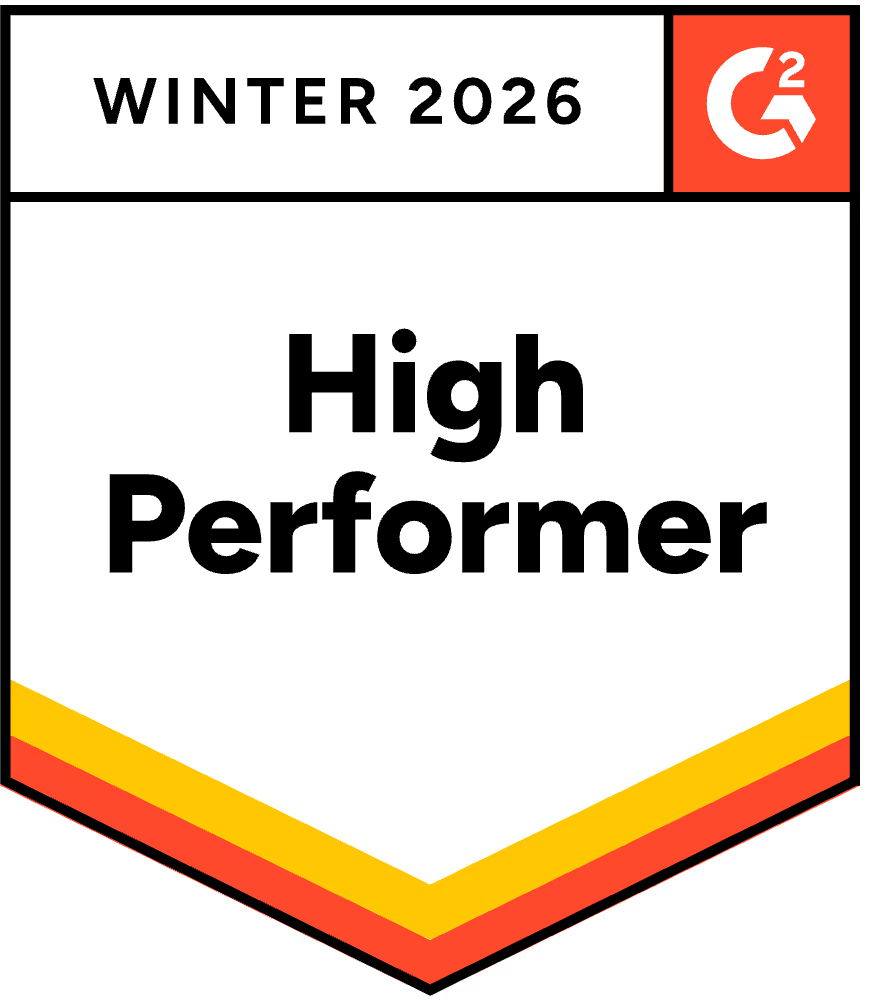AI & human resources: opportunities & challenges

Artificial intelligence is no longer a novelty in HR. Instead, it has become a transformative force, revolutionizing People management through automation, smarter workflows, and action-focused analytics. However, integrating AI into existing HR systems presents its own set of challenges.
Recent research revealed that 70% of chief HR officers worry about data privacy and cybersecurity when using AI in the workplace,* while 46% of individual contributors (ICs) fear AI could replace significant parts of their roles.** These concerns highlight the delicate balance HR leaders must strike when adopting AI-driven solutions.
This article explores AI’s evolving role in human resources, providing expert insights and tips on navigating risks and ensuring seamless AI integration into HR operations.
💡 Do more impactful work with AI
Empower leaders, managers, and team members with AI-powered goal-setting, performance reviews, competency frameworks, and much more.
👉 Discover Leapsome AI
*Statista, 2024
**Leapsome Workforce Trends Report, 2024
Expert insights on integrating AI into your HR processes
At least 80% of HR leaders and managers use AI at work several times a week (sometimes daily) — and businesses are seeing substantial efficiency gains. Failing to adopt AI could leave organizations struggling to keep up in a competitive landscape.
“HR leaders who embrace AI and automation will lead the next wave of the function’s evolution,” Tracy Avin, Founder of TroopHR, told us. “By adopting AI, People leaders will be better prepared to design advanced strategies for employee engagement and organizational success, driving innovation at an unprecedented pace.”
But it can be hard to know where to start when introducing HR automation tools — especially if you don’t know how they can positively impact your operations.
We spoke to Jessica Zwaan, Chief Operating Officer at Talenful, to hear her perspective:
“Integrating AI into HR operations requires a blend of strategy and sensitivity. I see there being a few key focuses and best practices:
- Ensure data privacy and address concerns upfront.
- Train HR personnel on writing more effective prompts, interpreting AI insights, and acting on the results.
- Use AI to help your HR team bridge the gap between tech and humans.
- Balance AI recommendations with the human touch and make empathetic and considerate decisions.”
Ultimately, Zwaan wants HR leadership to remember that “AI augments People Ops capabilities, but the ‘people’ remain paramount!”
Leadership coach and Co-Founder of Coeffect Benjamin Rolff supports this — and emphasizes AI’s potential in supporting employee growth:
“For coaching and training, AI applications can optimize content and tailor it precisely to your target group. Even better, AI can curate materials addressing individual learning needs and personalized content based on employees’ strengths and development goals.”
Current top AI use cases for HR professionals

83% of HR leaders and managers report increased efficiency thanks to AI. But how can AI support HR processes the most? Our research identified four key use cases.
Performance analysis
Many managers and HR leaders want to spend more time on the performance review process but simply can’t make room for extra tasks. Moreover, today’s professionals want more feedback — and 80% feel it increases their productivity.
That’s why so many organizations are implementing AI in their performance management systems. It can help them automate many core processes, including setting up review cycles, summarizing review conversations, creating potential courses of action, and crafting learning and development goals.
AI empowers businesses to sustain better, more impactful performance assessment processes without actually doing more (human) work.
Turnover prediction
According to our 2024 Workforce Trends Report, one in three employees wants to quit. That shows retention should be a significant priority for business leaders. And AII can help identify potential turnover risks and take swift action to mitigate them.
With predictive analytics, sentiment analysis, and personalized survey insights, AI tools can help company leaders spot retention wins and turnover risks, understand factors driving high turnover levels, and take proactive measures to address them.
Personalized learning
Learning and development (L&D) is another area to which HR leaders and managers often wish they could dedicate more time. That makes it an excellent opportunity for AI implementation; People professionals can use it to speed up manual tasks, brainstorm ideas, and carry out L&D initiatives more quickly and efficiently.
Dedicated tools like Leapsome Learning leverage AI to support course creation and come up with quiz questions to test employees’ newly acquired knowledge. Generative AI models like ChatGPT can also help you develop a framework to measure the success of your L&D initiatives or map learning paths for different team members.
💡 Want to learn more? Check out our guide on harnessing ChatGPT for HR.
Survey analysis
If employee engagement is your focus, sending out surveys is a great way to collect a range of powerful insights.
With a tool like Leapsome Surveys, you can easily build your own custom questionnaires (or use ready-to-use, best-practice templates) and set up automatic survey cycles to take the hassle out of gathering that data. The feature then leverages AI to analyze responses and discover common themes, empowering you to investigate employee sentiment and make impactful improvements.
🤖 Achieve more with Leapsome AI
Our industry-leading AI capabilities can help you turn data into meaningful action.
👉 Explore it now
Mitigating the risks & challenges of AI in HR
AI offers numerous advantages for HR professionals, but its recent development introduces unique challenges requiring careful oversight and thoughtful implementation.
“There are pros and cons to everything — including leveraging AI! The risks we’ve all been warned of are biased results, privacy concerns, and ethical considerations. There are many more, but these are top of mind when thinking about AI and HR,” says Hebba Youseff, Chief People Officer at Workweek.
Addressing these risks is crucial for maintaining employee trust and buy-in. As Benjamin Rolff explains:
“Using AI properly means maintaining a balance between algorithms and human touch. AI recommendations provide new perspectives; reflecting on these critically is on us. This requires regular education, clear regulations, and transparency on AI-driven decisions.
Undoubtedly, AI is improving our learning experience — staying human, fostering empathy, and acting morally remain our priorities!”
Operational challenges are just as pressing.
Daniel Huerta and Stephen Huerta, co-hosts of The Modern People Leader podcast, stress the need for clear ownership and expertise within HR teams leveraging AI:
“Many HR folks are already stretched thin — working with smaller teams, reduced budgets, and increased responsibilities. For each process that HR teams aim to improve or make more efficient using AI, achieving the desired results typically takes three to four days of trial and error.
Most HR practitioners simply don’t have the time for that setup. We think a new role will emerge within HR teams — the ‘AI expert.’ Given the enormous potential of AI to go beyond current HR practices, we believe this role will be essential. Imagine having a teammate whose sole job is to audit and optimize every process within the People team.” To measure your organization’s AI maturity, take our AI Readiness Assessment.
Our own research supports this perspective. While 41% of the ICs we surveyed identified AI as the top skill they want to improve, two-thirds of HR leaders and managers remain skeptical about whether AI will be appropriately used in People management processes. Many also fear that reliance on AI could diminish the value of essential human skills.
“While the ROI of HR tech is evident in the time saved, there’s a misconception that increased investment in technology could reduce the need for HR personnel,” comments Monica Sarkar, Co-Founder of Purple Umbrella. “AI can do a lot of things, but it can’t replace the essential human element at the core of human resources.”
Her advice?
“Embrace AI and HR tech — but to do so thoughtfully. Tread with caution but with an open mind.”
✨ Discover more ways AI can help your HR team
Read our comprehensive article for more detailed advice and insights from practitioners!
👉 Check it out
Embracing artificial intelligence in human resources

“We view AI’s role in HR as an accelerator, optimizer, and improver of content created by humans. We strongly believe in the potential of AI to enhance, not replace, the human role in people management. When technology is available to accelerate, streamline, and improve our work — we should embrace it!”
— Kajetan Armansperg, Co-Founder & Co-CEO of Leapsome
As AI evolves from trend to necessity, HR professionals must balance efficiency with a commitment to human-centered practices. The goal is clear: integrate AI to enhance impact and streamline processes while preserving the people-first core of HR.
People-centered HR software like Leapsome makes this balancing act easier. With AI-powered features like Surveys, Reviews, Goals, and Instant Feedback, HR professionals can unify People data, gain actionable insights, and drive measurable progress.
These capabilities empower HR teams to work smarter while elevating employee performance and engagement.
👀 Try the all-in-one People management platform
Future-proof your HR toolkit and drive HR excellence with Leapsome AI.
👉 Book a demo
Ready to transform
your People operations?
Automate, connect, and simplify all HR processes across the employee lifecycle.
.webp)
.webp)
 Request a demo today
Request a demo today
































